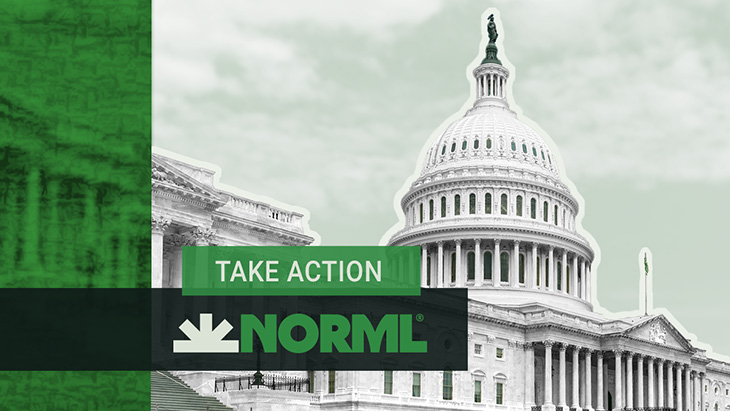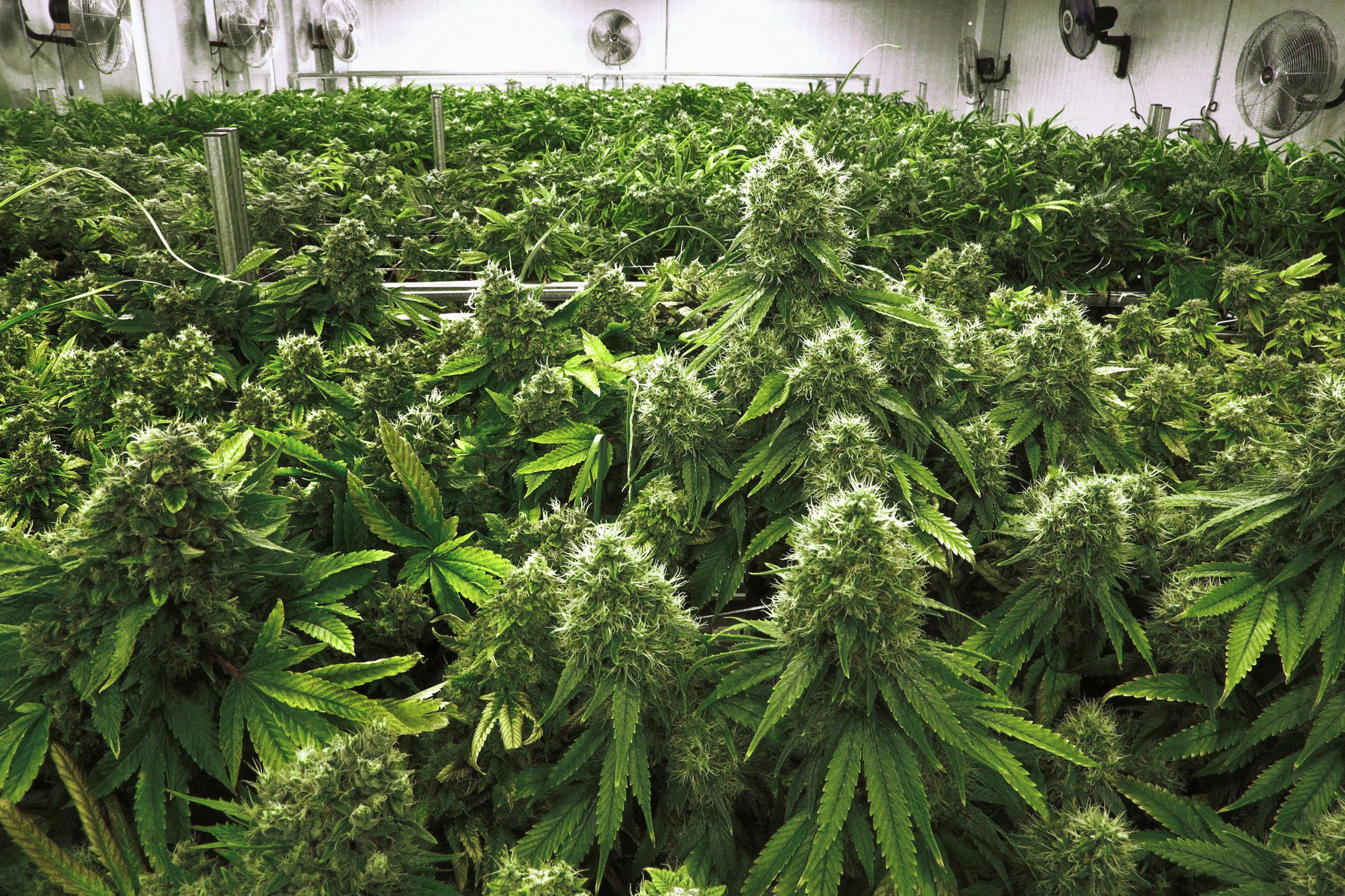
Lawmakers in many states are filing marijuana law reform legislation and some sessions are holding hearings. This week’s update highlights legislative developments in California, Colorado, Georgia, Hawaii, Illinois, Maryland, Minnesota, Missouri, North Carolina, North Dakota, New Hampshire, New Mexico, New York, Ohio, Pennsylvania, South Carolina, Tennessee, Vermont, and Washington.
LEGALIZATION
Hawaii
UPDATE: SB 669 was amended and advanced by the Senate Judiciary Committee.
Senate Bill 669 legalizes the personal cultivation and use of small amounts of cannabis.
Send a message to support this effort.
Minnesota
UPDATE: HF 100 has passed ten separate legislative committees in the House; its next hearing is scheduled for 2/23/23. SF 73 has passed eight committees in the Senate; its next hearing is scheduled for 2/22/23.
HF 100/SF73 allows adults 21 and older to purchase up to two ounces of cannabis and to home-cultivate up to eight plants ( four of which may be mature). In addition to creating a system of licensed, private retail cannabis businesses, municipalities, and counties could own and operate government dispensaries. Those with prior marijuana convictions would have their records automatically expunged. The legislation also allows for on-site consumption lounges and cannabis delivery services. It also contains language banning the sale of unregulated synthetic cannabinoids, consistent with Board of Pharmacy rules put into place last year.
Send a message to support this effort.
New Hampshire
UPDATE: HB 639 was amended and passed by the House Commerce and Consumer Affairs Committee. HB 639 will next head to the House Ways & Means Committee, before heading back to the floor and then potentially going to the Senate for consideration. HB 360 and HB 344 are scheduled for hearings in the House Criminal Justice and Public Safety Executive Session on 2/17/23 and 2/24/23, respectively. Submit your support for these bills here.
As amended, HB 639 allows adults 21 and older to purchase, possess and gift up to four ounces of cannabis. The newly renamed Liquor and Cannabis Commission would be responsible for regulating the commercial marijuana market and issuing business licenses. Sales to adults would be subjected to the 8.5% Meals and Rooms Tax.
HB 344 seeks to permit adults to possess up to 3/4 of an ounce of cannabis, 5 grams of hashish, and certain cannabis-infused products. It legalizes the home cultivation of up to six plants, of which three can be mature.
House Bill 360 legalizes the possession and use of cannabis for persons over the age of 21 by striking most references to cannabis (marijuana) in the state’s Controlled Drugs Act.
Send a message to support these efforts.
South Carolina
Senate Bill 211 legalizes the adult use of cannabis by removing marijuana as a Schedule I drug from the state’s criminal code, and it provides oversight regulating its cultivation, sale, and product labeling.
Send a message to support this effort.
DECRIMINALIZATION
Georgia
House Bill 338 removes criminal penalties for the possession of less than one ounce of marijuana. If passed, no penalty will be implemented on people found with less than an ounce of marijuana on their person.
Send a message to support this effort.
Tennessee
UPDATE: HB 309 will be heard by members of the House Criminal Justice Subcommittee on 2/21/23. SB 1072 is scheduled for a hearing before the Senate Judiciary Committee on 2/21/23.
HB 309 and SB 1072 decriminalize the possession of personal-use quantities of marijuana. Under these proposals, minor possession offenses will be reduced from criminal misdemeanors to civil violations punishable by a $25 fine or community service. The bill defines “personal-use quantity” as one (1) ounce (28.35 grams) or less of cannabis, five grams (5 g.) or less of cannabis concentrates, and infused products containing one thousand milligrams (1,000 mg.) or less of delta-9 THC.
Send a message to support this effort.
MEDICAL ACCESS
Illinois
House Bill 2430 allows for the sale of cannabis seeds, seedlings, and cuttings to registered qualifying patients. If passed, medical patients could purchase seeds and seedlings from licensed dispensaries rather than having to obtain seeds or obtain them from an illicit source.
Send a message to support this effort.
North Carolina
UPDATE: SB3 was amended and passed the Senate Judiciary Committee.
Senate Bill 3, also known as the North Carolina Compassionate Care Act, creates a medical cannabis program for qualifying patients.
Send a message to support this effort.
North Dakota
UPDATE: HB 1478 has passed the House 86 to 6.
House Bill 1478 seeks to make it easier for those over the age of 65 to participate in North Dakota’s medical cannabis program. This bill establishes that “an individual sixty-five years of age or older may submit […] a form developed by the department identifying a diagnosis of a qualifying debilitating medical condition and such other information as needed to establish eligibility.”
Currently, seniors seeking medical cannabis in the state of North Dakota cannot self-certify.
Send a message to support this effort.
Tennessee
UPDATE: HB 172 is scheduled for a hearing in the House Health Subcommittee Hearing on 2/21/23. SB 1461 is scheduled for a hearing in the Senate Judiciary on 2/21/23.
House Bill 172 / Senate Bill 1461 seeks to create a medical cannabis access program that would allow for the possession of up to 2.5 ounces of cannabis flower and 2000mg of the cannabis-derived product by qualified patients.
Send a message to support this effort.
Vermont
Senate Bill 71 amends the state’s existing medical access program by expanding the pool of qualifying conditions, and by increasing home cultivation limits for patients and their caregivers, among other changes.
Send a message to support this effort.
ADDITIONAL
California
SB 285 authorizes local jurisdictions to allow for the preparation or sale of non-cannabis food or beverage products, by a licensed retailer or microbusiness in the area where the consumption of cannabis is allowed.
Send a message to support this effort.
AB 374 permits cannabis lounges to sell non-cannabis-infused food and beverages, and also allows them to sell tickets to concerts and other events.
Send a message to support this effort.
SB 51 authorizes the Department of Cannabis Control (DCC) to issue provisional licenses for local cannabis equity applicants for retail activities for up to five years if the applicant meets the requirements of the Department.
Send a message to support this effort.
Colorado
UPDATE: SB 81 died in the Senate Health & Human Services Committee.
Senate Bill 81 would have reversed unduly restrictive provisions placed upon recommending physicians by the passage of HB 1317 in 2021.
Georgia
House Bill 387 seeks to grant unconditional pardons to all current Georgia citizens and lawful permanent residents who have been convicted of the offense of simple possession of marijuana in violation of the Controlled Substances Act.
Send a message to support this effort.
Illinois
Senate Bill 2321 protects employees who consume cannabis off the job from employment discrimination. Under the proposal, employees cannot be sanctioned for a positive drug test alone; however, employers would still be permitted to administer drug tests and they would still be permitted to refuse to hire an individual based on a positive drug test result.
Send a message to support this effort.
Maryland
House Bill 980 prohibits defendants in the pretrial, probation, and parole processes from having their release revoked solely based on their use of cannabis.
Send a message to support this effort.
Missouri
House Bill 985 seeks to remove caps on the number of licenses state officials can issue to cannabis producers/retailers.
Send a message to support this effort.
New Jersey
Assembly Bill 5171 prohibits the odor of cannabis as a justification for police to search a person’s vehicle. Under the bill, after a motor vehicle stop is initiated, law enforcement officers are prohibited from using a drug-detection canine, unless there is reasonable suspicion that there is a dangerous controlled substance other than cannabis in the vehicle or on the person.
Send a message to support this effort.
New Mexico
UPDATE: HB 314 was amended and passed out of the House Judiciary Committee.
House Bill 314 automatically expunges the criminal records of anyone charged with an offense involving cannabis that is no longer a crime on June 29, 2021, or that would have resulted in a lesser offense if the Cannabis Regulation Act had been in effect at the time of the offense.
Send a message to support this effort.
New York
Senate Bill 4680 facilitates the expungement of marijuana-related convictions resulting from arrests made by the New York City police department between the years of January 2nd, 2004, and June 2012.
Send a message to support this effort.
Ohio
UPDATE: SB 26 is scheduled for its second hearing in the Senate Judiciary on 2/22/23.
Senate Bill 26 amends the state’s traffic safety law so that those with trace levels of THC in their system can no longer be convicted of operating a motor vehicle while under the influence without further evidence of impaired driving.
Under existing law, persons are guilty of a traffic safety violation if they operate a vehicle with trace amounts of either THC in their blood or THC metabolites in their urine — even absent any demonstrable evidence of impairment. Because both THC and particularly THC metabolites may be detectable for days or even weeks post-abstinence — long after any impairing effects have worn off — this law criminalizes virtually anyone who consumes cannabis, and state-authorized medical cannabis patients especially.
While SB 26 does not do away with these limits altogether, as we would prefer, it does allow those charged under the statute to present evidence in court that they were not impaired and that they posed no legitimate traffic safety threat. By making such a change, impairment would simply be ‘inferred,’ but the limits would no longer be per se. Consequently, those defendants who provide evidence in court that they were not impaired to drive would be found ‘not guilty,’ regardless of their THC or THC metabolite levels.
Send a message to support this effort.
Pennsylvania
Under current Pennsylvania state law, a person is guilty of DUI if he or she drives with any amount of a Schedule I controlled substance or its metabolite in his or her blood.
Senator Bartolotta’s SB 363 amends this law and treats medical cannabis patients the same as those who use a prescription medication by requiring proof of actual impairment as the basis for a DUI conviction.
This legislation is essential to ensuring that patients are not charged with a DUI for the mere presence of non-psychoactive metabolites and without proof of actual impairment.
Send a message to support this effort.
Washington
Update: HB 1614 has passed the House Committee on Regulated Substances & Gaming. It is scheduled for a hearing in the House Committee on Appropriations on 2/22/23.
House Bill 1614 allows Washingtonians to home-cultivate up to six cannabis plants. A single household may possess up to fifteen cannabis plants, regardless of the number of individuals residing in the home.
Send a message to support this effort.
BILLS NORML OPPOSES
Maryland
UPDATE HB 1147 is scheduled for a hearing in the House Economic Matters Committee on 3/3/23.
House Bill 1147 establishes arbitrary THC potency levels for marijuana flower and solid/liquid concentrates. If passed, this bill will prohibit adults from accessing any product containing more than 15% THC.
NORML opposes proposed bans on cannabis products because imposing such bans only perpetuates the unregulated market. That is because outlawing these products will drive the production and sale of them exclusively underground. This result undermines the primary goal of legalization, which is to disrupt and ultimately replace the underground market with a transparent, regulated marketplace, wherein products are tested for safety and are clearly labeled so that consumers can make educated choices.
Send a message in opposition to this effort.














